From June 13 to 14, a team of seven experts organized by the CCIE of the Future Education School at Beijing Normal University traveled to Shenzhen for a series of academic discussions and school investigations. The main purpose of this activity was to advance research and application of artificial intelligence in the field of education, especially to make substantial progress in building a community for artificial intelligence education research and practice, thereby promoting the modernization and intelligent development of education in the Greater Bay Area and nationwide.
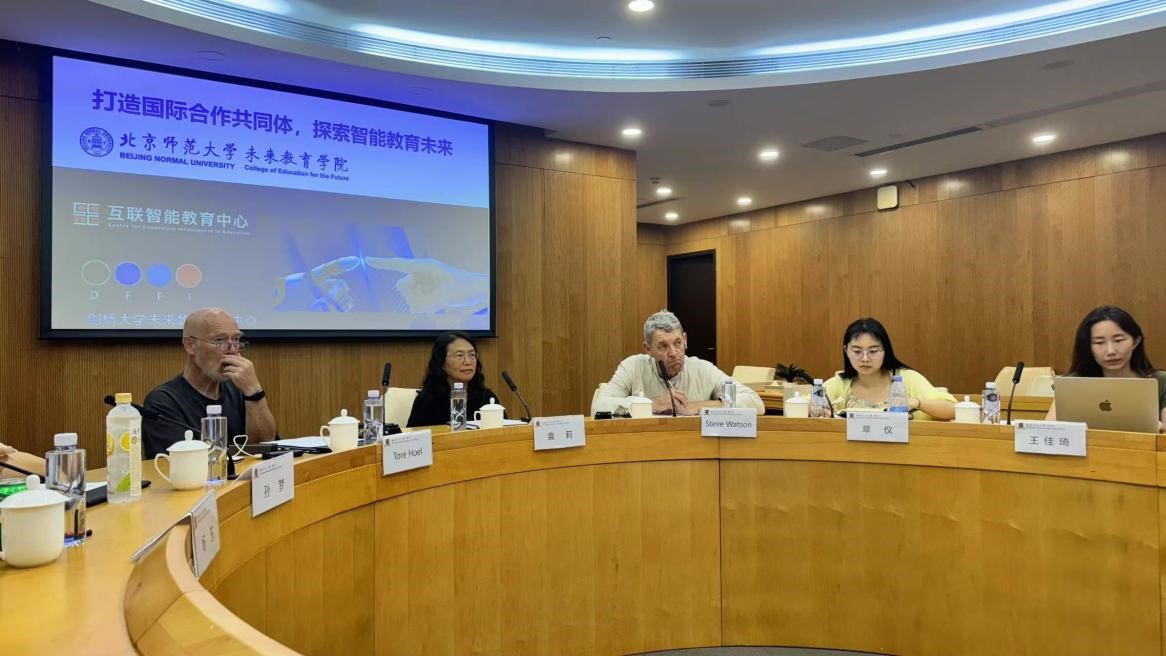
On June 13, the CCIE expert team visited the Institute of Contemporary Education at The Chinese University of Hong Kong, Shenzhen, to participate in an international seminar themed "Future Artificial Intelligence Education." This seminar aimed to deeply analyze the impact of generative artificial intelligence technologies, such as ChatGPT, on the education field and explore how to use these technologies to drive educational innovation.
The seminar was hosted by Zhou Hang, a director at the Mingyuan Future Education Research Institute. During the seminar, Director Tang Jiangpeng first pointed out that with the rapid development of artificial intelligence technology, basic education is standing at a new historical starting point. He believes that educators need to start from the correct educational philosophy and continually explore the application of AI technology in teaching through practical application. In addition, Director Tang emphasized the importance of combining theory and practice, noting that this is a key step in advancing educational innovation.
Professor Yuan Li offered insights from the perspective of educational reform. She suggested that in the face of AI-driven educational changes, educators should develop new teaching models and techniques while updating educational philosophies. Professor Yuan particularly emphasized the importance of close collaboration between educational technology experts and frontline teachers, believing that such cooperation will have a profound impact on educational practice.
Professor Steven Watson pointed out that the emergence of generative artificial intelligence technologies like ChatGPT increases the complexity of education, involving multiple aspects such as education, humanities, and ethics. Therefore, it requires joint efforts across disciplines and fields. The seminar highlighted the importance of establishing a research and practice community and suggested initiating educational practice activities and research projects around themes such as book reading, student essay writing, and AI exploration courses to drive educational innovation through concrete actions.
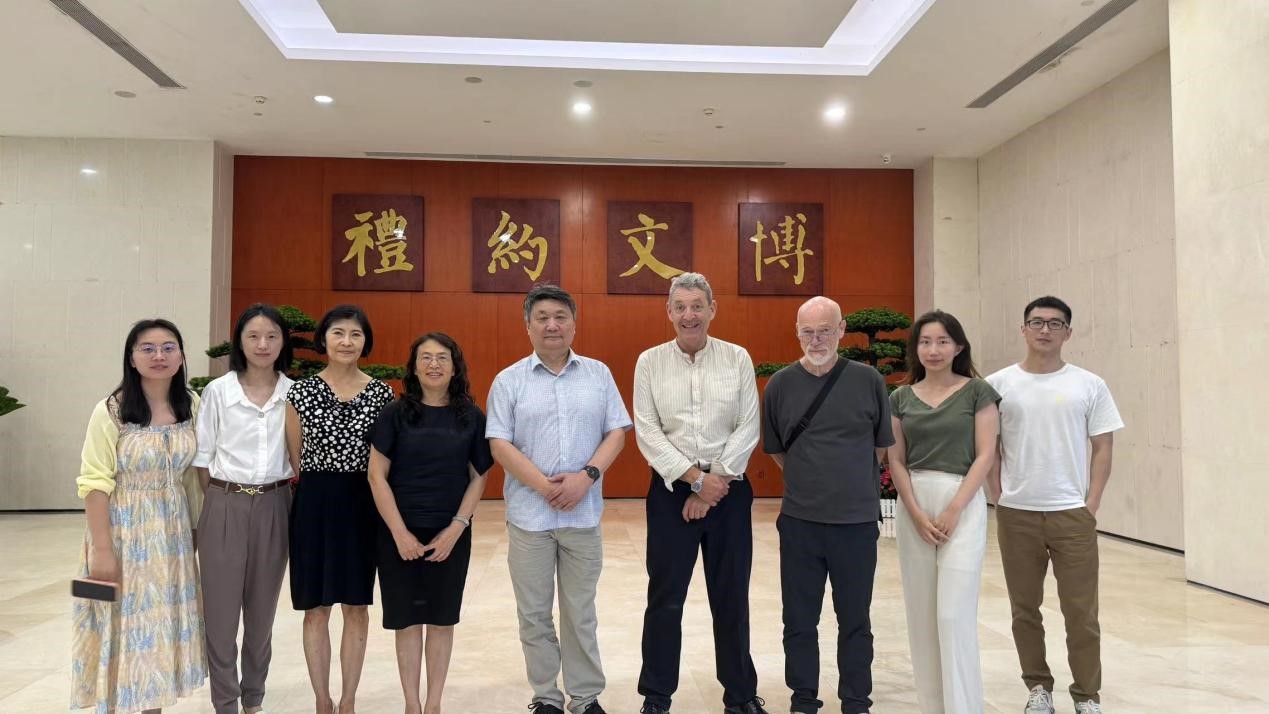
On June 14, the CCIE expert team visited Longgang Foreign Languages School (LFLS) in Shenzhen and held a special seminar on "Intelligent Education Reform and Development" with the school's leaders and teacher representatives.
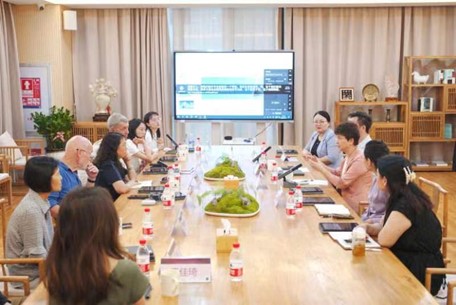
At the meeting, Tang Wenhong, Party Secretary and Principal of Longgang Foreign Languages School (Group), detailed the school's educational philosophy and envisioned the future of intelligent education. Directors Wang Lixia and Yao Qin shared in-depth insights on the school's educational informatization construction and intelligent education curriculum exploration. The experts were deeply impressed by LFLS's pioneering exploration in innovative teaching and learning models integrating information technology.
During the seminar, CCIE's Professor Yuan Li, Professor Steven Watson, Professor Tore Hall, and Zhou Hang, Director of the Beijing Mingyuan Future Education Research Institute, among other experts, presented their views. They deeply analyzed the future development of intelligent education from various angles, including AI cognitive iteration, technology-empowered teaching innovation, and AI ethics education. The experts unanimously agreed that as technologies like artificial intelligence continue to mature, the education field will see more innovative teaching methods and educational philosophies.
The seminar culminated in a lively discussion on the trends of future digital and intelligent education, the broad blueprint of educational informatization, the limitless possibilities of curriculum innovation, and LFLS's development ideas for intelligent education. They collectively explored how to effectively integrate modern technology while maintaining the essence of education to cultivate innovative talents suited for future society.
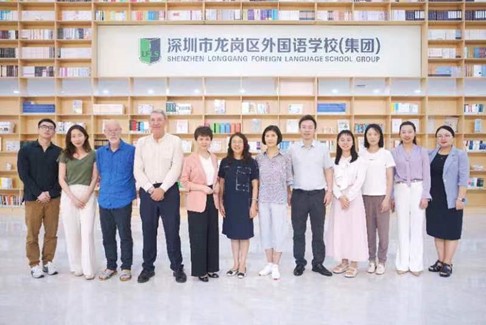
During this intelligent education research and practice community investigation, the CCIE research team also visited Shenzhen Senior High School (Group) and Jinfeng Primary School. They engaged with school leaders and frontline teachers to discuss the prospects of intelligent education, the application of generative artificial intelligence in education and teaching, the challenges and confusions faced, and the AI literacy of teachers and students. They also explored how to conduct collaborative research projects and practical innovations in the field of intelligent education.
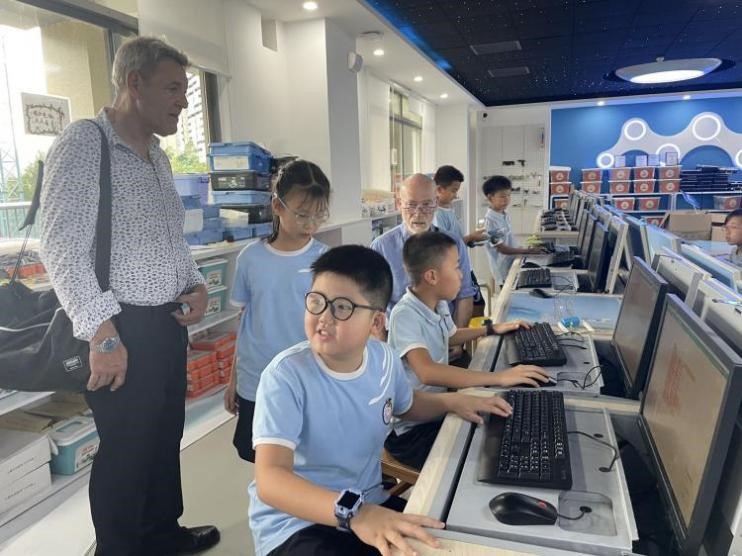
CCIE foreign experts visited Jinfeng Primary School to observe a student robotics practice education class
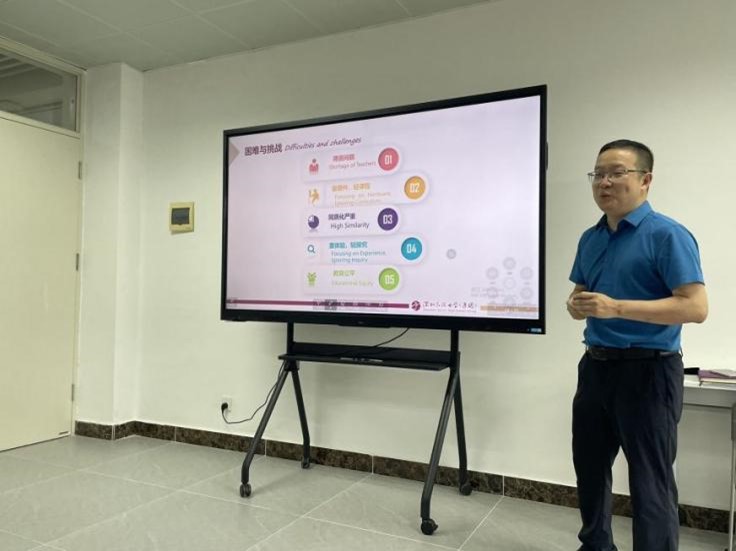
Teacher Zhang Lei from Shenzhen Senior High School introduced the development and teaching of the school's artificial intelligence curriculum
During the three-day investigation, the CCIE of the Future Education School at Beijing Normal University established closer ties with educational research institutions and primary and secondary schools in the Greater Bay Area, laying a solid foundation for future cooperation. This event was not only an exchange of academics and technology but also a sharing of cutting-edge educational concepts. Against the backdrop of the increasing prevalence of artificial intelligence technology, this cross-regional cooperation model allows the CCIE to better concentrate advantageous resources to address current educational challenges.
Written by: Sun Meng
First Review: Yang Qing, Chen Rui, Huang Zichen
Final Review: Xu Jingtian



 Last Page
Last Page
 Phone:0756-3621121
Phone:0756-3621121
 Email:ccie@bnu.edu.cn
Email:ccie@bnu.edu.cn